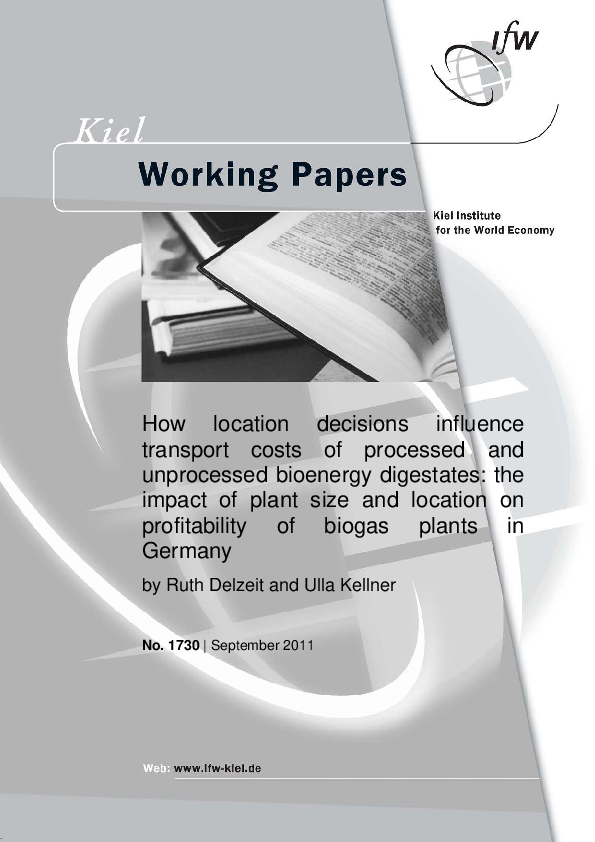Working Paper
How location decisions influence the transport cost of processed and unprocessed bioenergy digestates: the impact of plant size and location on profitability of biogas plants in Germany
Authors
Publication Date
JEL Classification
Key Words
The production of bioenergy is considered to be a promising energy source for a sustainable energy mix and it is politically promoted in many countries. With the exception of Brazilian ethanol, bioenergy not competitive to fossil energy sources, and therefore needs to be subsidised. Several types of bioenergy are based on bulky raw biomass with high per unit transport costs, importantly impacting on the plant’s production costs and profitability. In addition, considerable quantities of digestates are released, causing disposal costs. Various studies in the past aimed primarily at analysing transport costs of inputs. In this paper we focus on disposal costs of fermentation digestates from biogas production in Germany and analyse different processing techniques and their impact on profitability for three plant size in three case study areas.
Our results show that especially in regions with only a small amount of agricultural land and a large heterogeneity in its agricultural area, processing of digestates increases the profitability of biogas production. The same accounts for regions with high livestock density, where the area needed for disposal is comparatively large. The cost efficiency is enforced by a high share of animal excrements on input and the biogas plant size.






